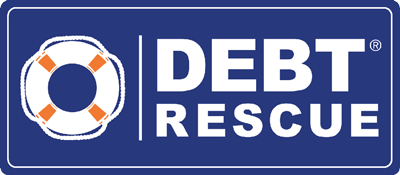Do you want to reduce household spending? A report by Digital Finance Analytics revealed close to 1 million people are suffering from mortgage stress in Australia. 921,000 households are struggling to make their mortgage repayments and keep up with everyday expenses like groceries and bills.
The report also found that 54,000 households will be at risk of 30-day mortgage defaults over the next 12 months. Putting them at risk of court judgements or potentially losing their home.
A review by the Australian Institute of Family Studies found Aussie households spend most on housing, utilities, transport and food. Here are a few ways you can tighten your budget in these areas.
Shop Around for Discounts on Utility Providers
How long has it been since you last spoke to your electricity supplier? How about your gas provider, internet provider or mobile phone company? Australians tend to set and forget their utility providers but new deals are always becoming available.
If you are at the end of your contract, jump online and shop around. Finding new deals with competing companies is a great way to reduce household spending over the long term. You could give your current supplier the opportunity to beat any quotes if you are really happy with their service.
Consider Consolidating Your Debts through a Mortgage Refinance
The same method can be applied to your mortgage. Refinancing your loan can be a great way to secure a better interest rate and therefore reduce the minimum repayment and increase your cash flow. Some fees may apply to breaking your mortgage before the end of the term so look over your contracts carefully before you go ahead with refinancing.
You might also be able to use the equity in your home to consolidate your unsecured debts into your mortgage. This can help improve your cash flow and make your debts easier to manage. We recommend using Debtstroyer Home Loans for mortgage refinancing or debt consolidation.
Save on Transport Costs
A car is essential for most Australian families, but the costs associated with owning a car have been identified as one of the biggest expenses for the average Australian household. Luckily there are some simple things you can try to reduce these costs.
Keeping your car maintenance in check will ensure it is running efficiently and therefore saving you on fuel costs. You can do this by having it serviced regularly, making sure your tyres are always pumped up to the recommended pressure and substituting the air-conditioner for fresh air. These are all ways to reduce household spending.
Apart from regular maintenance, you can make friends with neighbours and parents with kids who participate in the same activities as your own. A good old-fashioned carpool is a great way to save money on transport costs and it can be really convenient for time management. You could also try to take public transport on the weekends or as your commute to and from work.
Reduce Household Spending on Food
Reducing spending when it comes to food can be tricky because your family needs to eat. Reducing spending on food isn't about cutting back on the amount of food you buy, it's about making good decisions when you buy. Eating out at restaurants will chew through your food budget. If you do go out for dinner, try going to places offering free kids meals with a paying adult and don't be afraid to look online, on the back of shopping dockets and in the newspaper for discount vouchers.
To reduce household spending on all other grocery shopping, plan your meals ahead of time. Write a shopping list of all the food you will need for the week and get it all in one big shop. By following a list and sticking to a plan you are less likely to buy extra snacks and things which send the bill through the roof. Also, plan to do a big batch cook so you have leftovers for lunch the next day.
Free Entertainment
Keeping the kids active and entertained can be hard and expensive if you don't know where to look. A great way to reduce household spending for entertainment is to contact your local library. It provides access to books, toys, games and DVD's free of charge. They also host a number of activities, particularly through the school holidays which are often free or cost a really small fee. You can also turn to your local council our tourism body. They advertise a range of fun and free activities for kids throughout the year.
For more information on budgeting and how it can help get your finances back on track, check out our budgeting page.
-137x60px.png)




